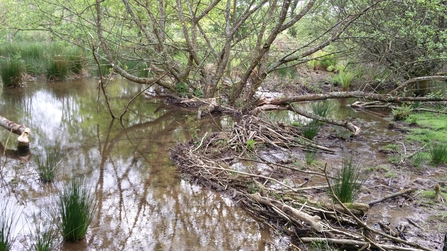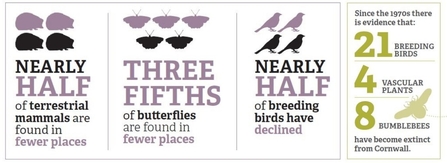Following the success of the enclosed Cornwall Beaver Project at Woodland Valley Farm near Ladock, Cornwall Wildlife Trust ultimately plan to release Eurasian beavers into their largest nature reserve at Helman Tor, south of Bodmin. The Beaver Officer’s role will be to consult local people, collect baseline data, and pull together all the information needed for a licence application.
Helman Tor nature reserve features a vast expanse of wild wetland at the heart of Cornwall, which would be further enhanced and revitalised by the presence of these native herbivores. However, due to the long absence of nature’s key ‘ecosystem engineers’ in the UK, the process of achieving a release licence will be rigorous. The Beaver Officer’s work will ensure that any wild beaver reintroduction is conducted responsibly, in a suitable location, and with the greatest positive impact for wildlife and local communities.
Cornwall’s precious wetlands and river valleys are at particular risk from climate change as we begin to experience longer periods of high temperatures and low rainfall, leading to drought conditions. At the same time, towns, villages and farmland are becoming more susceptible to flooding, as storms and periods of heavy rainfall become more extreme.


